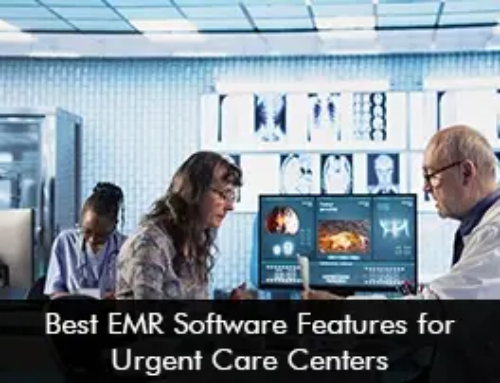There has been an increase in cybersecurity threats and ransomware attacks as more and more healthcare data is stored digitally. Cybercriminals and scam artists are on a constant lookout for any loopholes in the security frameworks of a healthcare organization. This stresses the importance of allocating enough resources and budget for a strong security landscape and privacy protocols to protect sensitive patient data which is stored and shared via Electronic Medical Records (EMR) software systems between different stakeholders involved.
What is the HIMSS Cybersecurity Survey about?
The HIMSS Cybersecurity Survey provides meaningful insights into the cybersecurity arena of US healthcare organizations. In the survey 168, US-based industry professionals provided their feedback which revealed that the most common cybersecurity threat includes phishing attacks, ransomware attacks, and social engineering attacks. In the survey 70% of the respondents revealed that cybersecurity incidents were on a rise for the past year, this could be due to the COVID-19 pandemic and hackers taking complete advantage of the compromising situation.
Main Highlights from the Survey conducted
The HIMSS cybersecurity survey revealed interesting facts about the cybersecurity landscape in the United States.
- Amongst the most common threat, phishing is one of the most common incidents faced by hospitals and healthcare organizations Phishing can be categorized into two types mainly, general phishing or spear-phishing which happens through email.
- Hackers are typically more interested and inclined to hack financial information or data followed by employee and patient information.
- Allocation of budgets in cybersecurity has remained static, and organizations have a limited budget for a robust security framework.
- Cyber-attacks result in business disruption and IT operations and workflows.
- Some hospitals are implementing innovative and enhanced security measures.
- Security risk assessments are being conducted which helps to test new policies and security procedures.
Cybersecurity Solutions
Healthcare organizations must have a proactive approach towards the protection and privacy of their organization and patients. Robust security is a must for maximum patient safety and data security round the clock.
- Healthcare organizations need to upgrade or change legacy systems.
- Complete security assessments need to be conducted.
- Staff members should be made aware of the importance of cybersecurity and should be trained to new security measures and rules that need to be followed always.
- An increase in IT budget allocated for cybersecurity. Only 6% or less budget is assigned for cybersecurity which is not enough.
Conclusion
Healthcare organizations need to keep cybersecurity as one of their main goals. They need to be hands-on with their security policies and build a culture of enhancing patient protection to keep new threats at bay. Cybersecurity needs to be the top priority of hospitals and organizations to continue with normal operations and keep data locked through tight and uncompromising security protocols. It is always advised that you select a HIPAA Compliant software solution for your practice to ensure end-to-end data encryption.








